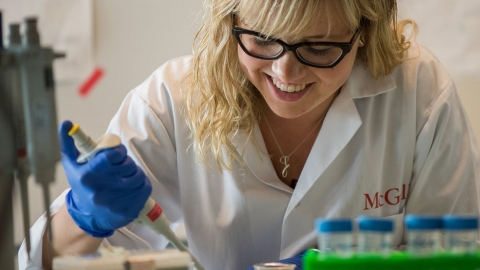The Reproductive Biology Research Program is an essential and vibrant branch of scientific exploration that plays a critical role in shaping the future of humanity. Focusing on the intricate processes of human reproduction, this program delves into the mechanisms underlying conception, embryonic development, and the myriad factors influencing reproductive health. By understanding the complexities of reproduction, researchers in this field are actively contributing to the well-being of current and future generations. Human reproduction is a fascinating and multifaceted process that involves various stages, beginning with fertilization and culminating in childbirth. The Reproductive Biology Research Program aims to unravel the mysteries of this process, examining the roles of genetics, epigenetics, hormonal regulation, and environmental factors. Researchers seek to comprehend the intricacies of sperm and egg formation, gamete interactions, and the development of a fertilized embryo, paving the way for groundbreaking discoveries and advancements in reproductive health.
Fertility and Infertility
Fertility is a central concern within the domain of reproductive biology. While many couples are fortunate enough to conceive naturally, others face the challenge of infertility. UTSA Reproductive Biology Research Program strives to uncover the underlying causes of infertility, offering hope and solutions to those struggling to start or expand their families. Studies in this field have led to innovations such as in vitro fertilization IVF, which has enabled countless couples to achieve their dreams of parenthood.

Genetics and Reproductive Health
Genetics plays a pivotal role in reproductive biology. Researchers in this program investigate the hereditary factors that can influence reproductive outcomes, from genetic disorders that impact fertility to the inheritance of traits from one generation to the next. Genetic counseling, prenatal testing, and gene therapies are some of the outcomes of this research, ensuring that future generations have access to the information and tools needed to make informed decisions about their reproductive health.
Epigenetics and Development
The Reproductive Biology Research Program also explores the exciting realm of epigenetics, which involves the study of changes in gene expression that occur without alterations to the underlying DNA sequence. Epigenetic modifications can be influenced by various factors, including diet, stress, and environmental exposures. Understanding the impact of epigenetics on embryonic development and the health of future generations is a crucial aspect of this program. Researchers seek to uncover how lifestyle and environmental factors can shape the health and well-being of offspring.
Reproductive Health in a Changing World
The world is constantly evolving, and with it, the challenges and opportunities for reproductive health. The Reproductive Biology Research Program keeps pace with these changes by examining the effects of urbanization, pollution, lifestyle, and diet on human reproduction. By identifying potential threats to reproductive health and developing strategies to mitigate their impact, researchers in this field contribute to the nurturing of future generations in an ever-changing environment.
The Impact of Reproductive Research
The research conducted within the Reproductive Biology Research Program has far-reaching implications for society. It empowers individuals and couples with the knowledge and tools they need to make informed decisions about their reproductive health. It also supports healthcare professionals in providing the best care and guidance to patients dealing with fertility challenges and reproductive disorders.
Categories: Education